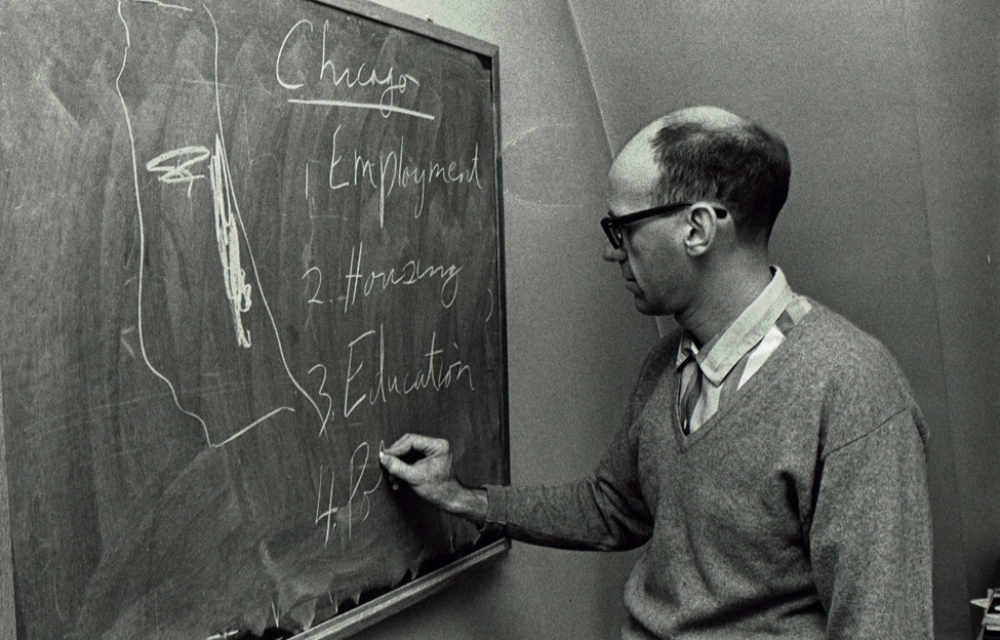(Synopsis by Donald Planey)
In this Chicago Urban League Study, Dr. Baron direct a CUL research team-headed by himself, and consisting of research assistants Harriet Stulman, Richard Rothstein, and Rennard Davis-in studying the attainment of decision-making positions within the Chicago Metropolitan Area’s major institutions. Examining corporations, law firms, unions, public school systems, local government, religious organizations, universities, and the Democratic Party, this empirical study draws from 1965 Census data, interviews by research assistants, and publicly-available information about various institutions’ rosters.
Here, Baron and his team examined a relatively straightforward empirical question: Which types of organizations in the Chicago metropolitan area tended to exclude Black people from decision-making posts, whether top-or mid-tier, and to what degree? The study finds that Black Chicagolanders are widely shut out of decision-making positions, but that there is a great deal of variegation in how different segments of the region’s institutions practice exclusion (or in rare cases, inclusion). The Democratic Party, CIO unions, and religious organizations are more likely to accept “above-token” Black leadership, while different segments of public, private, and civil society either entirely exclude Black people, or alternatively, accept “token” amounts of Black members into mid-tier leadership positions.
Towards the end of the article, Baron analyses the data, delineating the challenges of attaining “Black power” in the Chicago region. In turn, he implores the reader to consider the challenges of defining the purpose of attaining Black social, economic, and political power, especially within the confines of a class-stratified social order.

